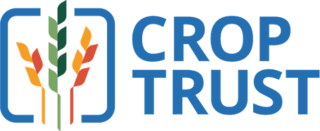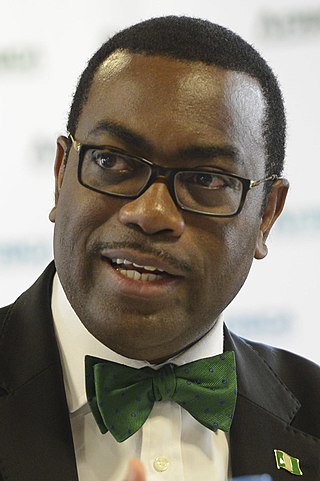
Rice is a cereal grain, and in its domesticated form is the staple food for over half of the world's human population, particularly in Asia and Africa, due to the vast amount of soil that is able to grow rice. Rice is the seed of the grass species Oryza sativa or, much less commonly, O. glaberrima. Asian rice was domesticated in China some 13,500 to 8,200 years ago, while African rice was domesticated in Africa some 3,000 years ago. Rice has become commonplace in many cultures worldwide; in 2021, 787 million tons were produced, placing it fourth after sugarcane, maize, and wheat. Only some 8% of rice is traded internationally. China, India, and Indonesia are the largest consumers of rice. A substantial amount of the rice produced in developing nations is lost after harvest through factors such as poor transport and storage. Rice yields can be reduced by pests including insects, rodents, and birds, as well as by weeds, and by diseases such as rice blast. Traditional polycultures such as rice-duck farming, and modern integrated pest management seek to control damage from pests in a sustainable way.

The International Maize and Wheat Improvement Center is a non-profit research-for-development organization that develops improved varieties of wheat and maize with the aim of contributing to food security, and innovates agricultural practices to help boost production, prevent crop disease and improve smallholder farmers' livelihoods. CIMMYT is one of the 15 CGIAR centers. CIMMYT is known for hosting the world's largest maize and wheat genebank at its headquarters in Mexico.

New Rice for Africa (NERICA) is a cultivar group of interspecific hybrid rice developed by the Africa Rice Center (AfricaRice) to improve the yield of African rice cultivars. Although 240 million people in West Africa rely on rice as the primary source of food energy and protein in their diet, the majority of this rice is imported. Self-sufficiency in rice production would improve food security and aid economic development in West Africa.

CGIAR is a global partnership that unites international organizations engaged in research about food security. CGIAR research aims to reduce rural poverty, increase food security, improve human health and nutrition, and sustainable management of natural resources.

The Africa Rice Center (AfricaRice), formerly known as the West Africa Rice Development Association (WARDA), is a pan-African intergovernmental association and a CGIAR Research organization, currently headquartered in Abidjan, Côte d'Ivoire. AfricaRice is an agricultural research center that was constituted in 1971 by 11 West African countries. By 2023, the center counted 28 African member states. Since 1986, AfricaRice has been one of the 15 specialized research centers of CGIAR.

The Crop Trust, officially known as the Global Crop Diversity Trust, is an international nonprofit organization with a secretariat in Bonn, Germany. Its mission is to conserve and make available the world's crop diversity for food security.
Njala University (NU) is a public university located in Njala and Bo, Sierra Leone. It is the second largest university in Sierra Leone. The largest and main campus of Njala University is in Njala, Moyamba District; the other campus is Bo, the second largest city in Sierra Leone.

Paul Richards is an emeritus professor of technology and agrarian development at Wageningen University, The Netherlands, and adjunct professor at Njala University in central Sierra Leone. He was formerly a professor in the Department of Anthropology, University College London for many years, and previously taught anthropology and geography, at the School of Oriental and African Studies, and the University of Ibadan, Nigeria.

Oryza glaberrima, commonly known as African rice, is one of the two domesticated rice species. It was first domesticated and grown in West Africa around 3,000 years ago. In agriculture, it has largely been replaced by higher-yielding Asian rice, and the number of varieties grown is declining. It still persists, making up an estimated 20% of rice grown in West Africa. It is now rarely sold in West African markets, having been replaced by Asian strains.
Gurdev Singh Khush is an Agronomist and Geneticist who, along with mentor Henry Beachell, received the 1996 World Food Prize for his achievements in enlarging and improving the global supply of rice during a time of exponential population growth.

William Dollente Dar is a Filipino horticulturist and civil servant who served as the Secretary of Agriculture under the Duterte administration. He was appointed by President Rodrigo Duterte on August 5, 2019, to replace Emmanuel Piñol. Dar held the same position under President Joseph Estrada in an acting capacity from 1998 to 1999. He is also a former Director General of ICRISAT.

Agriculture in Sierra Leone is a significant part of the economy of Sierra Leone, with it accounting for 58 percent national Gross Domestic Product (GDP) in 2007. Two-thirds of the population of Sierra Leone are involved in subsistence agriculture.
European Marketing Research Centre (EMRC) (is a not-for-profit international association, founded in 1992 in Brussels, Belgium. The organization exists to encourage and facilitate private sector investment in Africa to create sustainable economic development and drive regional change through international partnerships. EMRC is a collective network of entrepreneurs, financiers, consultants and officials based throughout the world. The organization’s strategic focus is to support economic development in Africa through partnership between African entrepreneurs and ventures and international corporations, and financial services firms. EMRC also supports intercontinental collaboration between African ventures.

Akinwumi "Akin" AdesinaCON is a Nigerian economist, who is currently serving as the President of the African Development Bank. He previously served as Nigeria's Minister of Agriculture and Rural Development. Until his appointment as Minister in 2010, he was Vice President of Policy and Partnerships for the Alliance for a Green Revolution in Africa (AGRA). He was elected as the President of the African Development Bank in 2015 and re-elected for a second term in 2020. He is the first Nigerian to hold the post.

Young Professionals for Agricultural Development (YPARD) is an international movement for young professionals. YPARD operates as a network in 72 countries through its chapters. This multi-stakeholder platform's main mission is to serve as a collective global network that enables young professionals to realize their full potential and contribute proactively towards innovative and sustainable agricultural development.

Ofada rice is a Yoruba dish. It is the name of an indigenous rice from a small community called Ofada, located in the Obafemi Owode Local Government Area of Ogun State. It is not exclusively grown in the community, but it is an indigenous rice grown in southwest Nigeria but named after the Ofada community. It is used in making a variety of dishes. Ofada rice are mostly blends, and some of the rice varieties in the blends are not indigenous to Africa; however, they usually also contain African rice. It is grown almost exclusively in Ogun State, a state in southwestern Nigeria. Ofada rice is grown on free-draining soil where the water table is permanently below the root of the plant.
Amir Kassam, FRSB, OBE, is visiting professor in the School of Agriculture, Policy and Development at the University of Reading, and a member of the global forum of the Food and Agriculture Organization of the United Nations. He was made OBE in the Queen's Birthday Honours List 2005 for services to tropical agriculture and rural development. He is a fellow of the Royal Society of Biology.
Eric Yirenkyi Danquah is a Ghanaian plant geneticist, professor, founding director of the West Africa Centre for Crop Improvement (WACCI) and former director of the Biotechnology Centre at the University of Ghana.

Ruth Khasaya Oniang'o is a Kenyan Professor of Nutrition and a former member of Parliament. She created Rural Outreach Africa (ROA) to empower smallholder farmers to address malnutrition, she oversees her country's nutrition policy, and she has been on the following Boards: Centre for Agriculture and Bioscience International, Board Member KILIMO TRUST , Food Security and Sustainable Development Division of the Economic Commission for Africa (ECA), Institute for Policy Research Analysis (IPAR), Former Board Chair, Sasakawa Africa Association (SAA) , International Centre for Soil Fertility and Agricultural Development (IFDC), USA, Nutrition Third World Board, based in Belgium and supports Third World Nutrition Research , Member of Trustees for the International Rice Research Institute, CGIAR Centre, Project Advisory Committee of the HarvestPlus, and CGIAR Challenge Program seeking to enhance bioavailability of nutrients from food crops using conventional mean.
Papa Abdoulaye SeckFAAS is a Senegalese politician and scholar. He was the Minister of Agriculture and Rural Equipment from 2013 to 2019.














